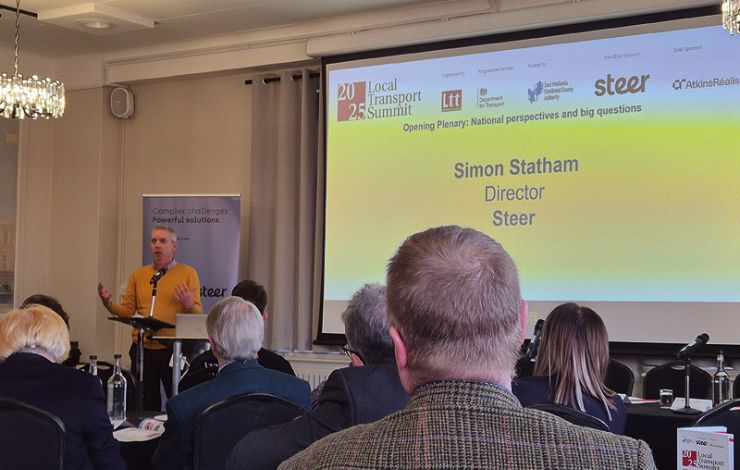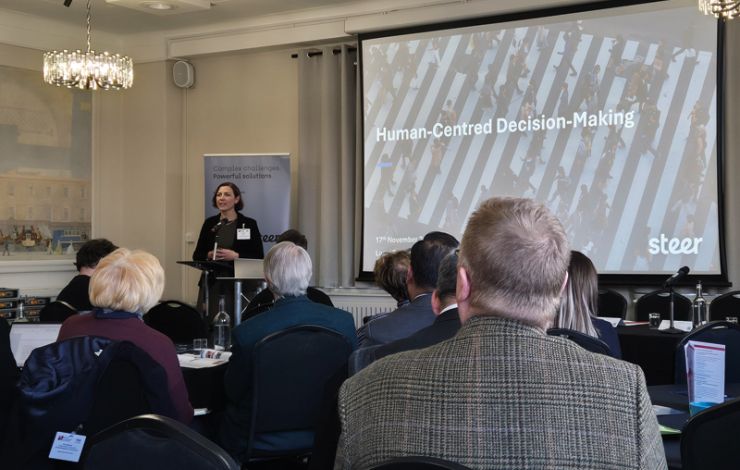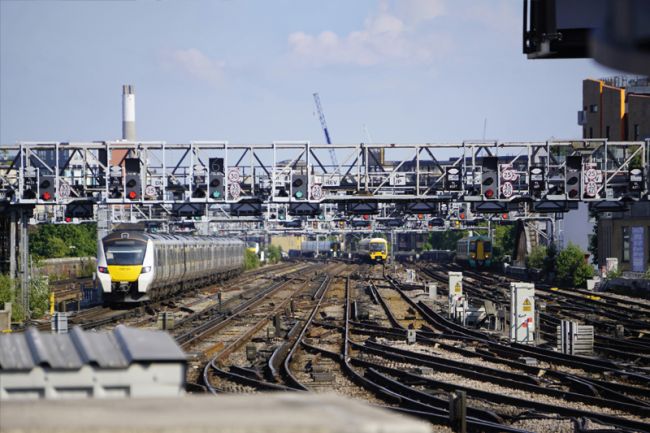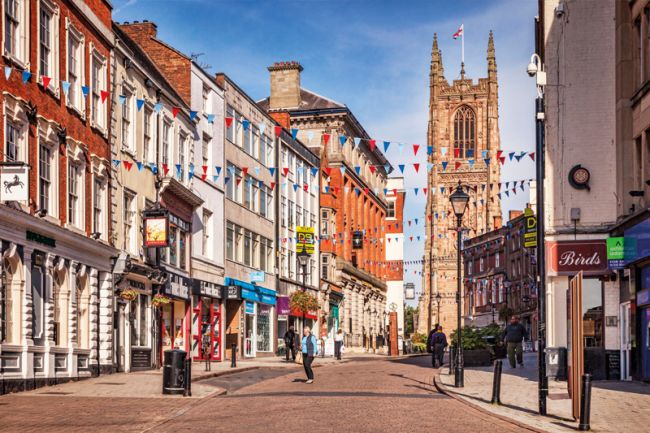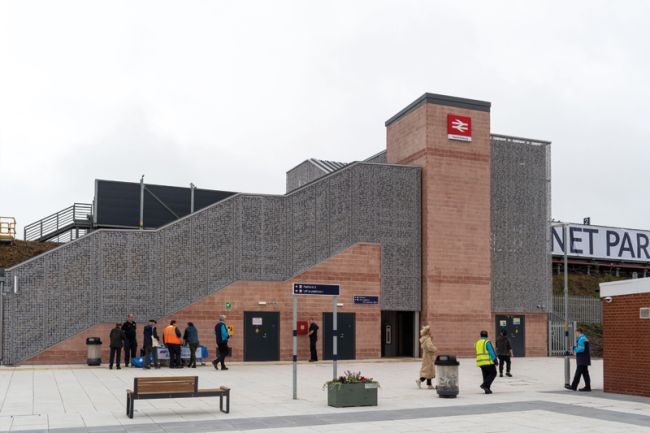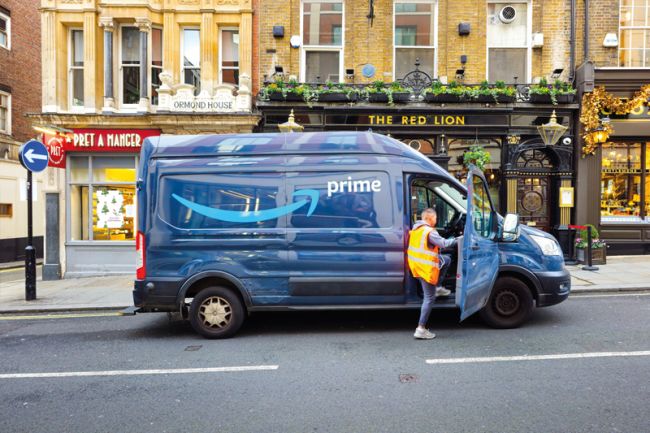What did we learn at the Local Transport Summit 2025?
With the East Midlands entering a new era of devolved powers, this year’s Summit spotlighted the vital role of human-centred decision-making in delivering better outcomes for communities. We unpack the themes, challenges and opportunities that will shape local transport for decades to come.
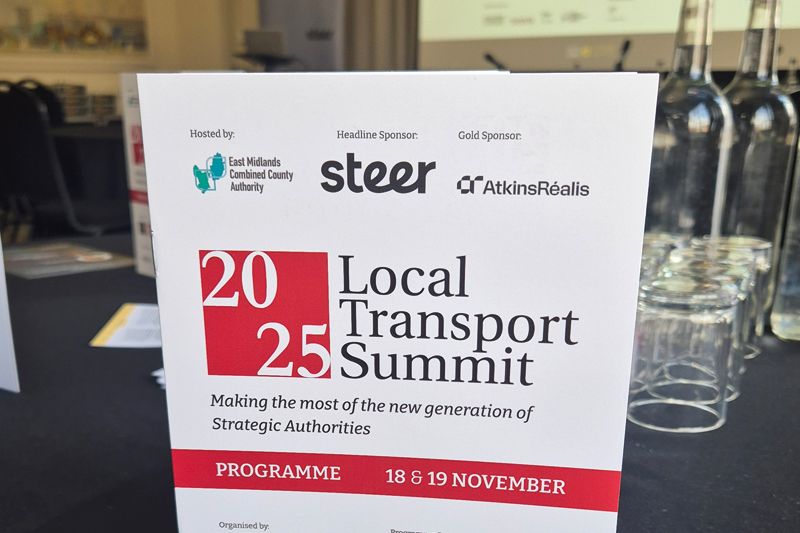
The 2025 Local Transport Summit brought together leaders from across the UK to explore a central question: how do we make transport decisions that place people at the centre – and deliver prosperity for decades to come?
Hosted in Derby with Steer as a headline sponsor, the discussions were shaped by exciting developments taking place in the East Midlands region.
With the newly formed East Midlands Combined County Authority (EMCCA) now holding devolved powers and funding over transport, housing, the economy, jobs and skills and net zero, speakers emphasised that decisions made today will influence regional prosperity long into the future.
Here are Steer’s key takeaways:
A pivotal moment for the East Midlands
As a polycentric region with Derby and Nottingham as twin anchors – and many rural towns facing real transport isolation – the East Midlands typifies the complexity of planning for diverse and dispersed communities. Delegates highlighted challenges, including growing congestion, high car dependency but low car ownership, safe and affordable travel for older children and young adults, bus capacity pressures and the need for strategic planning across boundaries, with the region bordered by three other Combined Authorities.
Against this backdrop, EMCCA’s leadership – and Steer’s Midlands Lead, Simon Statham – underscored the importance of human-centred decision-making to guide both immediate choices and long-term strategies, alongside innovation and big-picture thinking. EMCCA’s Innovation Team showcased gains made in micromobility and a region-wide travel app (currently in testing phase) designed to make everyday journeys more accessible to all. These efforts reflect the broader Summit shift towards designing networks that fit real lives, not expecting people to fit the network.
National policy direction and long-term decisions
The Department for Transport opened with reminders of two key developments in achieving better local transport outcomes: the publication of an Integrated National Transport Strategy next year, and £2.3bn in devolved local transport grants to give local leaders greater responsibility and accountability. To support this, Steer has been working alongside combined authorities, delivering workshops that help them prioritise Integrated Settlement funding in ways that maximise long-term value for their communities.
Housing emerged as a major theme. Despite three new towns being announced as part of national growth plans, concerns were raised about limited transport provision – including one site (Crews Hill) with a rail service only every two hours. Without early, integrated planning, new developments risk becoming car-dependent from day one.
The newly passed Bus Services Act was also central to discussions, giving local areas more power to shape coherent and sustainable networks through franchising, enhanced partnerships, or independent operation.
Planning with people, not for people
Speakers throughout the Summit reinforced the power of genuinely listening to communities. Steer’s Nicola Kane shared insights from the award-winning Sheffield Access & Movement Plan, showing how engaging people from a range of backgrounds leads to solutions that reflect lived experience and deliver real value.
A recurring theme was the role of storytelling in building trust and support. The film, released during Greater Manchester’s Metrolink expansion to Wythenshawe – featuring residents describing how the scheme changed their daily lives – was cited as a powerful example of how human stories can help shape political and public momentum. Across the Summit, this was linked to a broader focus on unlocking prosperity for marginalised or underserved groups.
Geoff Hobbs from Transport for New Homes highlighted a widening disconnect between housing delivery and sustainable transport, noting that many greenfield sites remain poorly suited to buses or walking, lacking high streets or civic centres, and housing delivery is increasingly treated as a numbers exercise, making it harder to secure long-term transport outcomes. The message was consistent: without early transport planning, developments risk locking in car dependency for a generation.
Get in touch
Steer was proud to support this year’s Summit, contributing our experience in strategic planning, community engagement and evidence-based decision-making at a moment when these capabilities matter more than ever.
To discuss how to make your transport strategies more human-centred – driving long-term growth and better outcomes for communities – get in touch with:
Simon Statham (Midlands), Nicola Kane (North), Steve Bishop (South), or Edmund Cassidy (London).


